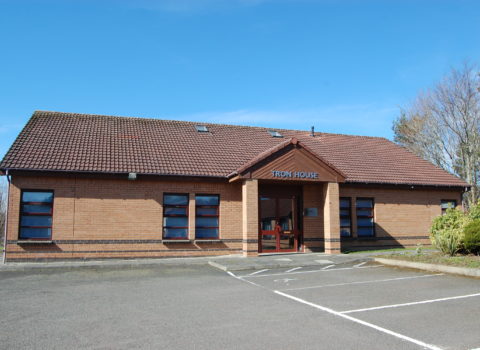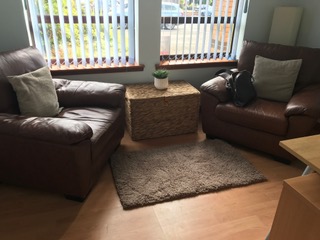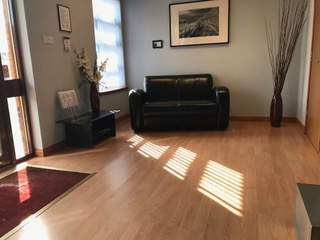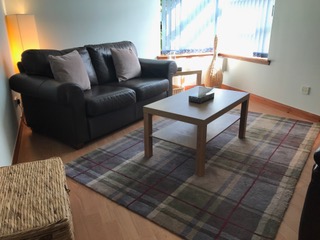Depression
If you have depression, you will experience a low mood for a long period of time. Unlike the occasional bout of feeling sad, it will affect your daily life and make it hard for you to find enjoyment in day-to-day activities. Some days you may find it impossible to get out of bed, while other days you may feel more able to hide it and carry out normal daily tasks.
Living with depression can be difficult, not only for sufferers but also for those around them. Despite this, many will wait a long time before seeking help. This is especially true if they fear it will make them feel rejected, ridiculed or deprived of a sense of control.
Do I have depression?
For many people, an obstacle stopping them from seeking help is understanding whether or not they actually have depression.
Speaking to a professional, whether that’s your GP or a counsellor, can help you understand what you need. This can range from self-help tips and breathing exercises, to a course of psychotherapy and medication. Everyone is different and will need differing levels of support.
If you have depression, you are likely to have at least five of the following depression symptoms:
You may feel:
• Worthless
• Like life isn’t worth living
• Constantly anxious, tearful and worried
• Like you can’t concentrate
• Indecisive
• Irritable and intolerant of others
• You are not getting enough enjoyment out of life
• You have a lack of self-esteem
• You have excessive and inappropriate guilt
• You have no motivation or interest in things you used to enjoy
You may experience
• Changes in sleeping patterns – broken nights or oversleeping
• Changes in eating patterns – loss of appetite or overeating
• Tiredness and a loss of energy
• Persistent headaches and/or stomach upsets
• Chronic pain
• Slower speaking pattern than usual
• Loss of libido
• Changes to your menstrual cycle
You may also:
• Neglect hobbies and interests
• Isolate yourself from friends and family
• Take part in fewer social activities
• Notice your productivity falling at work
You may not notice if you have developed depression, especially if it has been a gradual process over a number of weeks or months. Sometimes it takes a friend, a family member or a partner to point out that you may have a problem.
Why do we become depressed?
Sometimes it’s instantly apparent what the cause is, but other times there isn’t an obvious reason why you feel so down. It could be that you’ve lost something or someone, or it could stem from disappointment or frustration. Usually, there will be more than one reason why you suffer from depression, and these reasons differ from person to person.
Distressing life events
Distressing life events can take their toll on us. Divorce, family problems or losing a job are all momentous in our lives that can alter our mood.
Bereavement
Losing someone that is close to you, even from natural causes, can increase the risk. It’s not always just the loss that causes it, it’s the way we deal with it. If you don’t grieve or express your feelings properly, they can build up and contribute towards depression.
Childhood experiences
Your childhood experiences can affect you in adult life. If you were physically or emotionally abused, or not taught to cope with troubles that enter your life, it could lead you to having problems as you grow up.
Anger
‘Frozen anger’ is a term that’s closely related to depression. You may have gone through something that caused you to become angry, but at the time you couldn’t express your feelings properly. This type of anger becomes suppressed; it can then build up and become a cause of depression.
Circumstances
Feeling like you’re alone, stressed, physically exhausted and/or have no one to talk to can all contribute to the condition.
Social media
Although social media itself doesn’t cause depression, constantly comparing your life to other peoples’ has been heavily linked.
Physical illness
Some types of physical illness can alter how the brain works and cause depression. Such conditions include:
• Hormonal problems, e.g. an underactive thyroid
• Viral infections, e.g. glandular fever or flu (prevalent in younger people)
• Painful or lasting illnesses, e.g. arthritis
• Life-threatening conditions, e.g. heart disease and cancer
Alcohol
Heavy drinking on a regular basis can make you more susceptible to developing depression.
If your feelings start affecting many parts of your life, this is a sign you may need professional support.
The parts of your life that depression can have a negative impact on include, but are not limited to:
• Relationships
• Work
• Interests
• Overall sense of happiness and enjoyment
Thoughts of suicide and self-harm are also warning signs that your condition is getting worse. If you experience these, you should look to seek professional support to beat depression.
For many, being treated for depression can seem an impossible task, but the sooner help is sought the better. In some cases, the illness can disappear without treatment. This is not always the case however and there is a danger that living with the condition will put significant emotional and physical strain on your health and well-being. Therefore, many people with depression opt for treatment.





